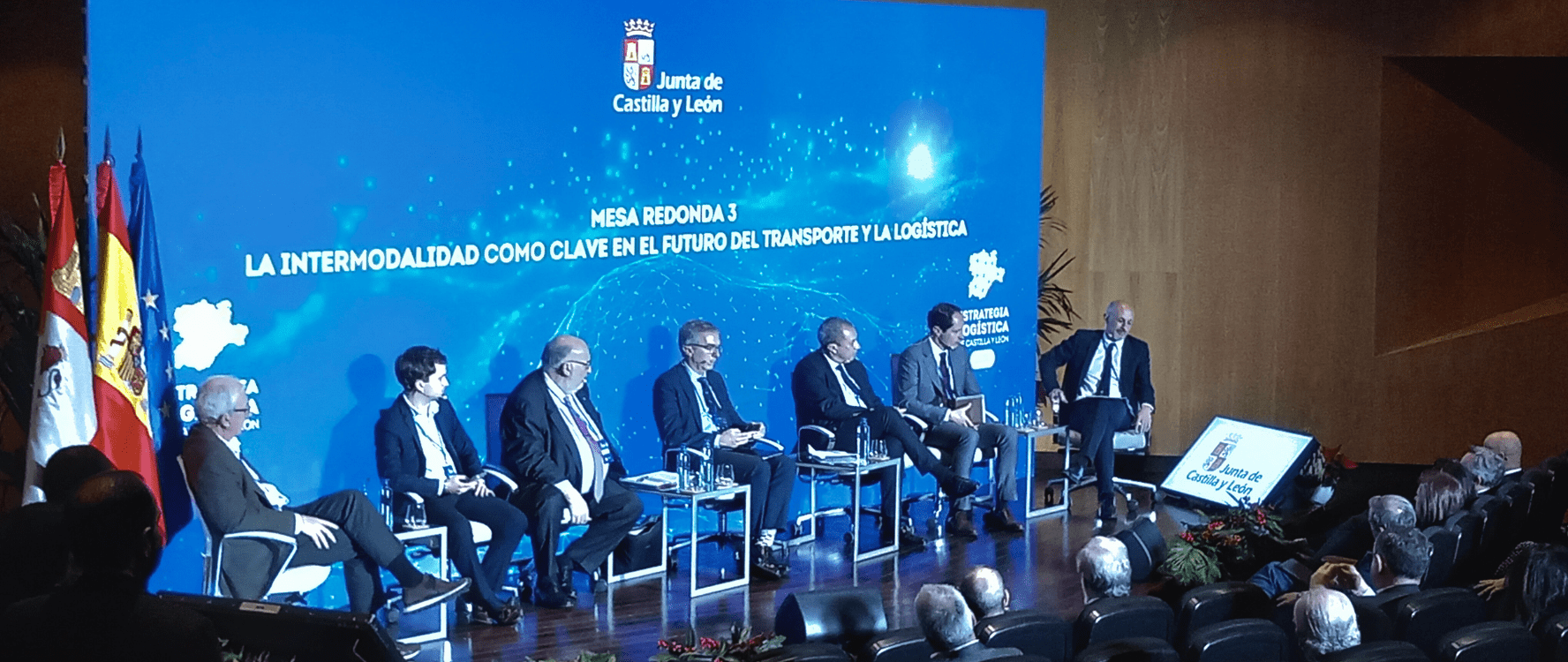SHARE

The Ports of Aveiro and Figueira da Foz attended the presentation of the 'Logistics Strategy for Castilla y León - 2030', an event organised by the Junta de Castilla y León, which took place on 2 December at the Science Museum in Valladolid, Spain.
The Chairman of the Board of Directors of the Port of Aveiro, S.A. and the Port of Figueira da Foz, S.A., Eduardo Feio, took part in the round table discussion on 'Intermodality as the key to the future of transport and logistics'. The debate, moderated by Ramón Vázquez, President of ACTE, the Spanish Association of Transport and Logistics Centres, was attended by various representatives of the sector, including Juan Castellet, President of the National Land Transport Council and Multimodal CETM, César Díaz Maza, President of the Santander Port Authority, David Díaz Peña, Director of Tracción Rail, Pablo Hoya, Director of Zaldesa S.A.U., and Juan Carlos Martín, General Director of the Burgos Transport Centre.
In his speech, Eduardo Feio highlighted the services currently provided by the Ports of Aveiro and Figueira da Foz and how they contribute to the development of an intermodal logistics strategy. Among the projects considered strategic, he mentioned the development of the Intermodal Terminal at the Port of Aveiro, the improvement of the rail infrastructure at the Port of Figueira da Foz and the progress of the Pampilhosa intermodal platform. He also highlighted the strengthening of the historic partnership between these ports and Zaldesa, in Salamanca, which will be boosted by the completion of the Salamanca Intermodal Terminal.
The reopening of the Beira Alta line and the development of the Guarda terminal were also identified as key initiatives for strengthening intermodality, improving the Atlantic corridor and strengthening economic relations between the region of Castilla y León and central Portugal.
Projects to improve port accessibility were also highlighted, with the Port of Figueira da Foz in the construction phase and the Port of Aveiro recently awarded the project and environmental impact study. The focus on port digitalisation was also highlighted as a key factor in promoting new intermodal services, contributing to the European Union's decarbonisation objectives and also improving economic competitiveness between the two regions.
With this presence, the ports of Aveiro and Figueira da Foz reaffirm the strategic role of these infrastructures in promoting intermodality and strengthening trade relations between central Portugal and the region of Castilla y León in Spain.